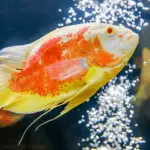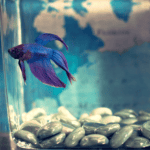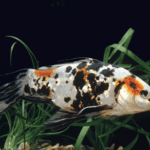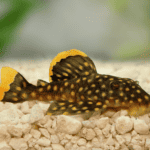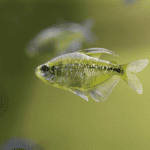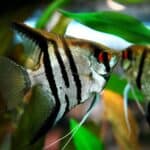Guppy fish are among the most popular fish for aquarium enthusiasts, known for their vibrant colors and lively personalities. To keep these little fish healthy and thriving, it is important to provide them with a nutritious diet. In this article, we will explore the best foods for guppy fish and how to feed them properly.
Live Foods
Live foods, such as brine shrimp, daphnia, and black worms, are a staple in the diet of guppy fish. These foods offer a high protein and vitamin content, which helps to promote growth and color development.
In addition to their nutritional value, live foods also provide guppy fish with the opportunity to hunt and exercise their instincts. However, it is important to note that live foods can carry parasites and disease, so it is crucial to only purchase them from reputable sources.
Frozen Foods
Frozen foods, like bloodworms, krill, and brine shrimp, are another popular option for guppy fish. They are convenient and easy to store, and they offer a similar nutritional profile to live foods.
When feeding frozen foods, it is important to thaw them thoroughly and to only feed guppy fish what they can consume in a few minutes. Overfeeding can lead to water pollution and health problems for your fish.
Dry Foods
Dry foods, such as flakes and pellets, are a convenient and affordable option for guppy fish owners. They are easy to store and come in a variety of formulas to meet the specific needs of different fish species.
While dry foods are a convenient option, they do not provide the same level of nutrition as live or frozen foods. It is best to use dry foods as a supplement to a diet of live or frozen foods.
Our recommended guppy food (which is good for fish of all ages) is this one from Amazon:
Vegetables
Guppy fish can also benefit from a diet that includes fresh vegetables, such as spinach, lettuce, and peas. Vegetables provide essential vitamins and minerals, and they also serve as a source of fiber, which can help to promote digestive health.
When feeding vegetables to guppy fish, it is important to blanch them first to make them more digestible. Simply boil the vegetables for a few minutes, then chop them into small pieces before offering them to your fish.
Feeding Schedule
It is recommended to feed guppy fish two to three small meals a day, rather than one large meal. This helps to keep their metabolism running smoothly and to prevent overeating.
It is also important to observe your fish while they are eating to ensure that they are consuming all of their food. If you notice that uneaten food is sinking to the bottom of the aquarium, you may need to adjust the size or frequency of your feedings.
Importance of Water Quality
Maintaining a clean and healthy aquarium environment is crucial for the well-being of guppy fish. Poor water quality can lead to a range of health problems, including stunted growth, weakened immune systems, and even death.
To keep the water quality in your aquarium at optimal levels, it is important to perform regular water changes and to monitor the pH, ammonia, nitrite, and nitrate levels. A good rule of thumb is to perform a 25% water change every two weeks, and to test the water once a week.
In addition to performing water changes, it is also important to avoid overfeeding your fish and to remove any uneaten food promptly. An excess of food and waste can quickly lead to a decline in water quality, so it is important to be diligent about keeping the aquarium clean.
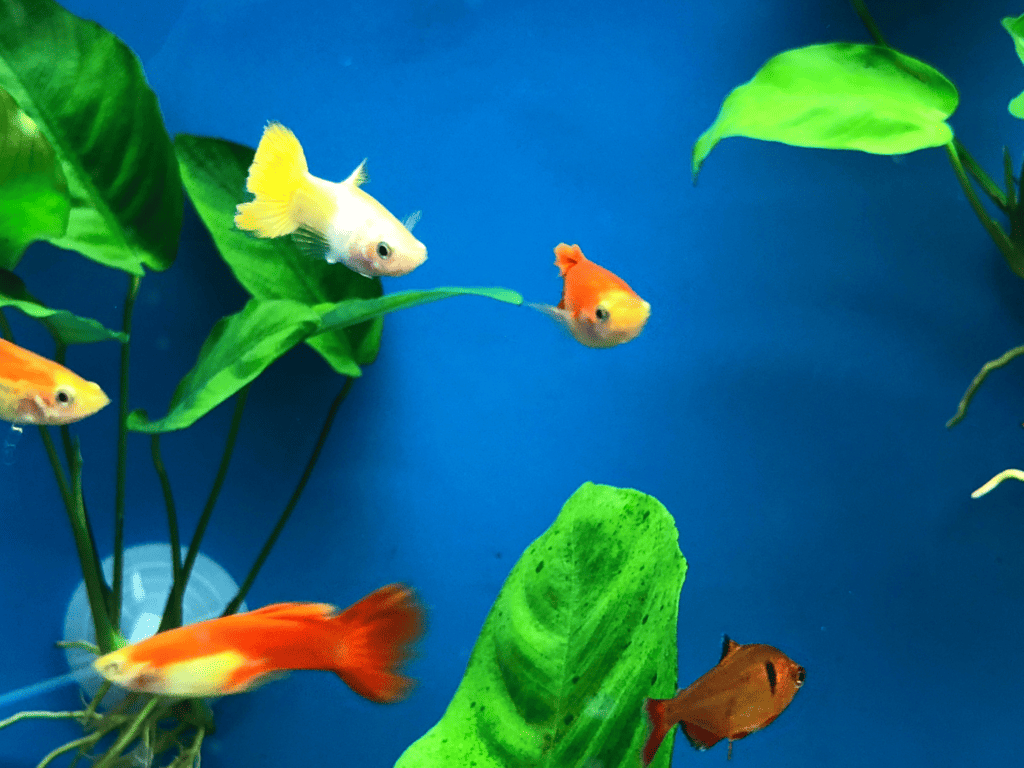
Supplements
In addition to a balanced diet, guppy fish can benefit from the addition of vitamins and minerals supplements. These supplements can help to improve their overall health, promote growth, and enhance their coloration.
When choosing a supplement for your guppy fish, it is important to look for a high-quality product that is specifically formulated for aquarium fish. Many supplements are available in liquid or powder form, and they can be added directly to the aquarium or mixed in with food.
It is important to follow the recommended dosages when using supplements, as overuse can lead to an imbalance in the water chemistry and harm your fish. Be sure to read the label carefully and consult with your local aquarium specialist if you have any questions.
Common Mistakes
Feeding your guppy fish correctly is essential for their health and well-being, but there are several common mistakes that owners make when it comes to feeding. Some of the most common mistakes include:
- Overfeeding: Guppy fish have small stomachs and can easily become overweight if they are overfed. It is important to only offer them what they can consume in a few minutes and to avoid feeding them more than two to three times a day.
- Feeding the wrong types of food: Not all foods are suitable for guppy fish, and feeding them the wrong type of food can lead to health problems and digestive issues. Be sure to research the specific dietary needs of your fish before offering them any new foods.
- Feeding at the wrong time: Guppy fish are most active during the day and will benefit from being fed when they are awake and alert. It is best to feed them in the morning and in the afternoon, rather than at night.
- Not observing your fish while they eat: Observing your guppy fish while they eat can help you to determine if they are consuming all of their food and if they are healthy. If you notice that uneaten food is sinking to the bottom of the aquarium, you may need to adjust the size or frequency of your feedings.
Cost Comparison
The cost of food for guppy fish can vary widely, depending on the type and quality of the food. Live and frozen foods are often more expensive than dry foods, but they offer a higher nutritional value and can help to keep your fish healthy and vibrant.
Dry foods, on the other hand, are a more affordable option, but they are less nutritionally complete and should be used as a supplement to a diet of live or frozen foods. Vegetables, such as spinach and lettuce, are an affordable and nutritious addition to the diet of guppy fish, and they can be purchased for just a few cents at your local grocery store.
When deciding on the best food for your guppy fish, it is important to consider not only the cost, but also the nutritional value and the health benefits that each option can provide. While it may be tempting to choose the most affordable option, investing in a high-quality diet can pay off in the long run by keeping your fish healthy, vibrant, and happy.
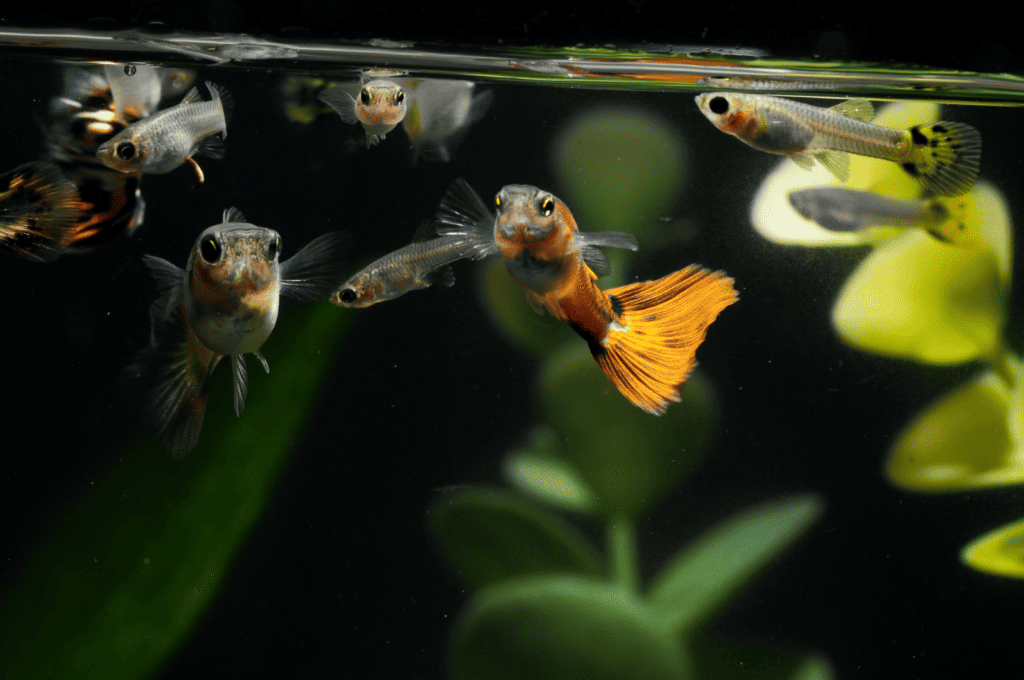
Variety is Key
A varied diet is essential for the health and well-being of guppy fish, as it can help to provide them with a range of essential vitamins, minerals, and nutrients. Offering a combination of live, frozen, dry, and vegetable foods can help to prevent boredom and ensure that your fish receive all of the nutrients they need to thrive.
In addition to the health benefits, a varied diet can also help to keep your guppy fish active and interested in their food. These little fish are naturally curious and enjoy exploring their environment, and a varied diet can help to keep them entertained and engaged.
In conclusion, feeding your guppy fish a balanced and varied diet is essential for their health and happiness. By following the guidelines outlined in this article and offering a combination of live, frozen, dry, and vegetable foods, you can provide your fish with all of the essential nutrients they need to thrive. With a little care and attention, your guppy fish will reward you with their vibrant colors and energetic personalities for years to come.
Conclusion
In conclusion, a balanced and varied diet is essential for the health and happiness of your guppy fish. By offering a combination of live, frozen, dry, and vegetable foods, you can provide your fish with all of the essential nutrients they need to thrive. With a little care and attention, your guppy fish will reward you with their vibrant colors and energetic personalities for years to come.


